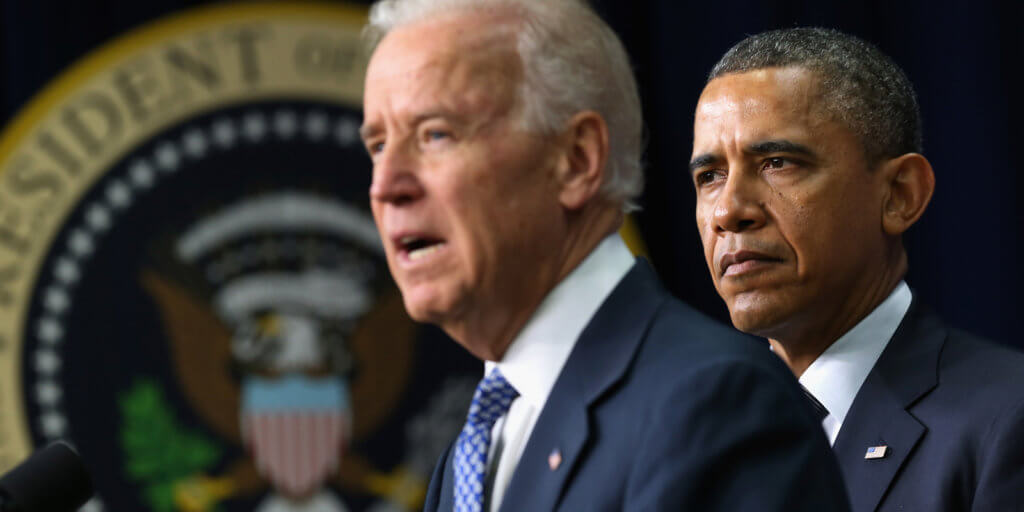
During his final State of the Union address, President Barack Obama called for America to become "the country that cures cancer once and for all." He called the initiative a "moonshot" and put Vice President Joe Biden in charge of "mission control." Biden had called for a "moonshot" to cure cancer in October of 2015 after losing his son to brain cancer earlier in the year.
In recent years, many advances in the treatment and diagnosis of certain types of cancer have dramatically improved cancer treatments and five year survival rates. With many new innovations on the horizon, cancer treatments should continue to improve in the years to come. But even with all of these improvements, cancer still remains the second leading cause of death in the U.S. Can finding a cure for cancer really be called a "moonshot?" Is it more of a pipe dream? Or is curing cancer a truly attainable goal that may well be within our reach?
One of the biggest obstacles to finding a cure for cancer is that there are many different kinds of cancer, and they all react differently to current treatments. There are over 200 different diseases that fall under the umbrella of "cancer." Curing cancer isn't as simple as finding a vaccine to eradicate cancer completely, as you could with certain viral infections. Multiple cures would have to be found to truly cure cancer. While the cure for some cancers continues to elude doctors and scientists, there are many other cancers which are effectively cured with current treatments.
Prostate and testicular cancer patients, for example, have extraordinarily high five year survival rates when compared to patients with other types of cancer. Current treatments are very effective at eradicating or effectively suppressing these types of cancer. Still other cancers, such as Melanoma, lung and kidney cancers, are responding to immunotherapy treatments, which use the human immune system to attack cancer. The HPV vaccine protects patients from cancers that can be caused by the Human Papillomavirus.
New research and medical innovations are making great strides every day, moving us closer to a cure. Scientists have recently discovered that Nisin, a preservative found in cheese, naturally fights cancer cells. They are now doing more research to find out how they may be able to use this in future cancer treatments. There has also been a recent discovery showing exosome encapsulated Paclitaxel enables a delivery system allowing the powerful chemotherapy drug to be 50 times more effective at fighting cancerous tumors in the body. This would allow doctors to treat patients using 50 times less of the drug which would result in more effective treatment and milder side effects. Other recent innovations in the fight against cancer include an increased understanding of how cancer cells form tumors, understanding how cancer cells die, improvements in immunotherapy and chemotherapy, and using mathematics to predict the evolution of cancer.
One of the key factors to determining how effectively doctors are able to treat cancer in patients is early detection. Five year survival rates for cancer dramatically improve when cancer is detected early on, before it spreads to the lymph system and to parts of the body other than the original site. Advances in screening capabilities, such as tomosynthesis for breast cancer, are aiding doctors in identifying and treating cancer earlier for patients. Screening is not available or reliable for all types of cancer, but researchers are constantly trying to improve existing technologies and develop new and effective cancer screening techniques.
The main focus of the President's new taskforce on cancer will be "breaking down silos" in the scientific community. The goal is to double the current rate of scientific progress towards curing, treating, and preventing cancer. To do this, the taskforce will aim to make better use of money designated for cancer research, and create an environment that encourages more cooperation and sharing of information among the scientific community. The taskforce will consist of members throughout many governmental departments and scientific institutions.
Seemingly every day there are new discoveries made that will help scientists and doctors in the fight against cancer. Current treatments and screening technologies are better than they have ever been, and they are getting better all the time. Patients who are diagnosed with cancer can expect to live longer than they would have at any time in the past. With all of the improvements that have been made in the last few decades, and new discoveries on the horizon, with a nudge from President Obama's taskforce it would seem finding a cure for cancer may well be within our reach, even if it takes a moonshot to get us there.
